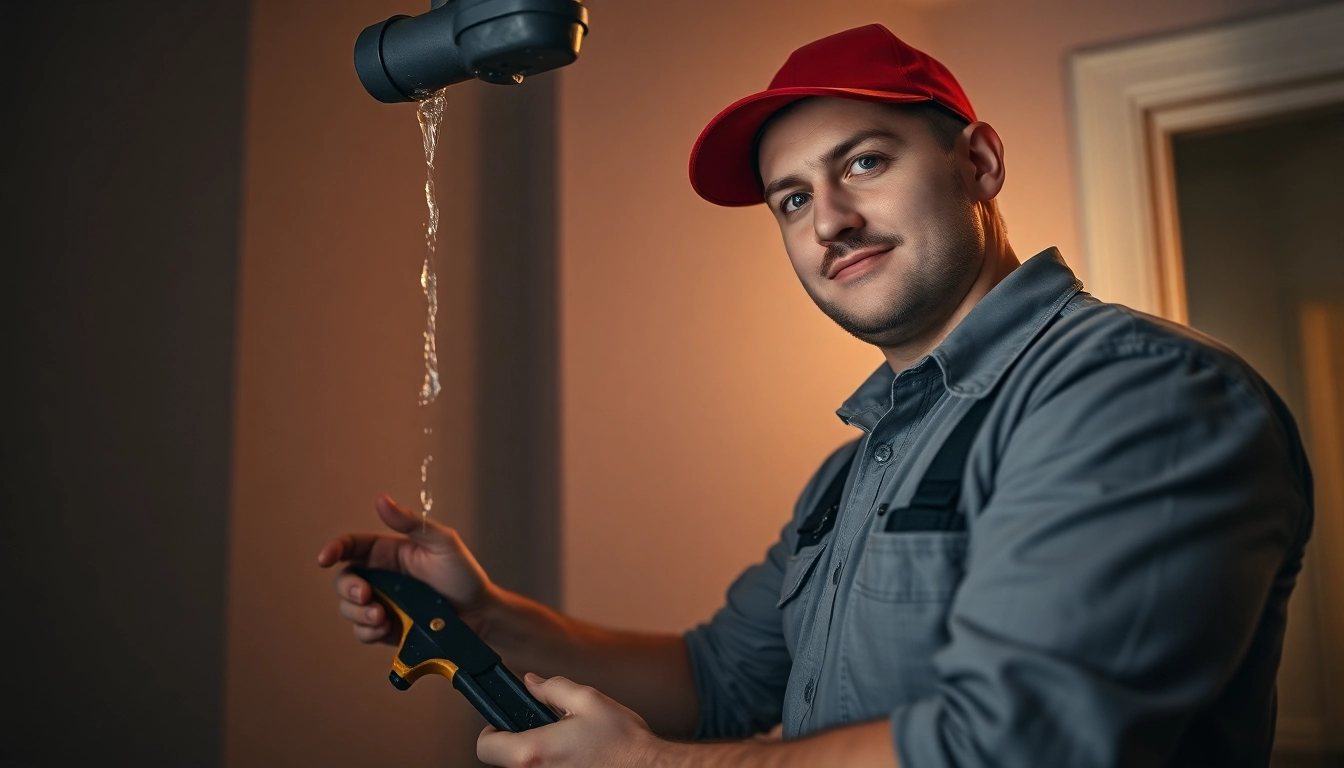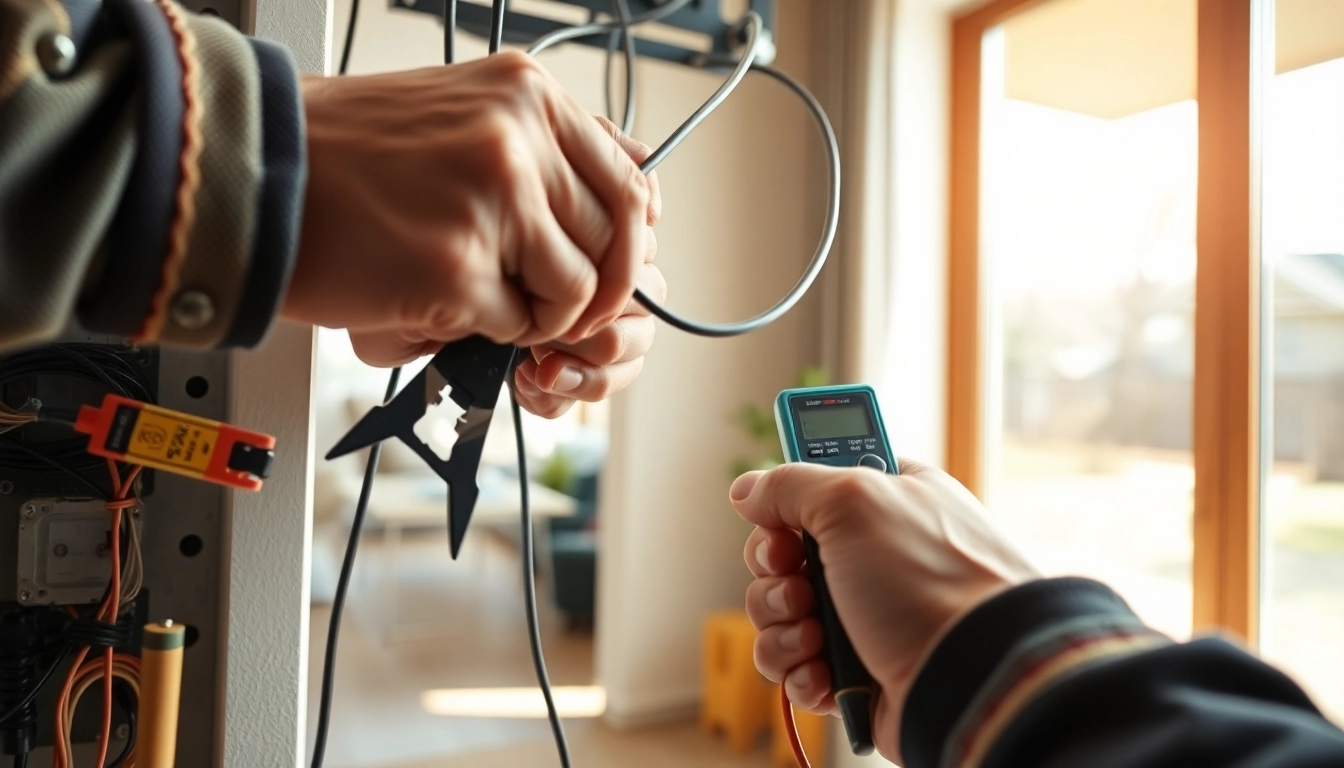Understanding Emergency Plumbing Needs
Plumbing issues can arise unexpectedly, leading to chaos and stress for homeowners. Having a reliable emergency plumber on speed dial is essential for timely resolution of such crises. Understanding when you need emergency plumbing services can help you respond effectively and minimize damage. In this article, we will delve into various aspects of emergency plumbing, from recognizing what qualifies as an emergency to preventative measures that can save you time and money.
What Qualifies as an Emergency?
An emergency plumbing situation occurs when there’s an issue that poses risks to your property or safety. Common situations that are classified as plumbing emergencies include:
- Severe Water Leaks: If a pipe bursts or a major leak develops, it can lead to significant damage and requires immediate attention.
- Clogged Drains: A blockage in the sewer line that leads to backups can pose health risks and must be addressed urgently.
- Overflowing Toilet: This not only creates an unsanitary environment but can also damage flooring and walls.
- No Hot Water: In cold weather, a malfunctioning hot water system can be an emergency, making a household uncomfortable.
Common Plumbing Emergencies
Understanding the common types of plumbing emergencies can help prepare you for what to expect:
- Pipe Bursts: Often caused by frozen pipes, corrosion, or high water pressure, a pipe burst requires immediate action to prevent wide-scale flooding.
- Water Heater Failures: If warm water is vital for your household needs, a sudden cessation of hot water can lead to discomfort.
- Gas Leaks: While rare, gas leaks can occur in plumbing systems that include gas lines, presenting a fire hazard requiring urgent evacuation and professional intervention.
- Backed-Up Sewers: This situation can expose households to hazardous waste materials; immediate assistance is essential.
How to Identify a Plumbing Crisis
Recognizing the signs that indicate a plumbing emergency is crucial. Here are some symptoms to monitor:
- Unusual noises emanating from your pipes, which can signal air leaks or blockages.
- Water stains on ceilings or walls, indicating leaks that may worsen over time.
- Low water pressure, which can signify underlying plumbing issues.
- Mold and mildew presence due to excess moisture, hinting at hidden leaks.
Choosing the Right Emergency Plumber
When faced with a plumbing crisis, choosing the right emergency plumber quickly can save you hours of headaches and costly repairs. Here are some factors to consider:
Factors to Consider
Before hiring an emergency plumber, consider several factors to ensure you receive quality service:
- Availability: Ensure the plumber you choose offers 24/7 service to handle emergencies at any time.
- Experience: Look for a plumber with extensive experience in dealing with emergency situations to handle your specific problem efficiently.
- Response Time: A prompt response is critical in emergencies; inquire about their average response time to calls.
Checking Qualifications and Reviews
It’s essential to verify the credentials of your potential emergency plumber. Key considerations include:
- Licensing: Ensure the plumber is licensed and meets local regulations for plumbing work.
- Insurance: A valid insurance policy protects both you and the plumber in cases of accidents or damage during repairs.
- Customer Reviews: Research testimonials and reviews from previous clients to gauge the quality and reliability of their services.
Assessing Pricing and Services Offered
Understanding the cost structure associated with emergency plumbing is crucial. Some tips on assessing pricing include:
- Transparent Pricing: Opt for plumbers who provide clear pricing structures upfront, avoiding hidden fees.
- Compare Quotes: It’s advisable to obtain quotes from multiple emergency plumbers to identify fair pricing based on your geographical area.
- Service Range: Make sure the plumber offers a comprehensive range of services to address not just immediate emergencies but also future plumbing needs.
Steps to Take in an Emergency
In an emergency plumbing situation, being prepared can minimize damage. Here are essential steps to follow:
Immediate Actions to Mitigate Damage
When faced with a plumbing emergency, taking prompt actions can make a significant difference:
- Shut Off the Water: Locate the main water shut-off valve to stop any more water from leaking and causing damage.
- Clear the Area: Remove objects and furniture from the affected area to prevent damage from water.
- Contain the Situation: Use buckets or towels to collect dripping or leaking water while waiting for professional help.
When to Call for Professional Help
Knowing when to call for professional help is crucial. Contact an emergency plumber when:
- A plumbing issue exceeds your ability to fix it safely.
- DIY methods have been unsuccessful in resolving the problem.
- You notice signs of structural damage in your home due to leaks.
Preparing for the Plumber’s Arrival
Preparing for the arrival of an emergency plumber can ensure a swift resolution:
- Clear Pathways: Ensure the plumber has clear access to the area needing repairs.
- Gather Information: Have relevant details like the location of the problem and any symptoms at hand to provide to the plumber.
- Stay Calm: Panic can cloud your ability to communicate effectively; staying composed will make the process smoother.
Preventative Maintenance Tips
Preventative maintenance can reduce the likelihood of plumbing emergencies significantly. Here are some useful tips for homeowners:
Regular Plumbing Inspections
Scheduling regular plumbing inspections with a trained professional can catch problems before they escalate. These inspections typically involve:
- Checking for leaks in pipes, faucets, and appliances.
- Assessing water pressure and flow rates.
- Inspecting the condition of water heaters and ensuring they meet safety standards.
Seasonal Plumbing Checks
Seasonal changes can have adverse effects on your plumbing system. Common seasonal checks should include:
- Winter-proofing pipes to prevent freezing.
- Inspecting outdoor faucets and irrigation systems before winter.
- Ensuring proper drainage before and after heavy rainfall or spring thaw.
Emergency Preparedness for Homeowners
Being prepared for plumbing emergencies is key to minimizing stress and damage:
- Know Your Shut-Off Valves: Familiarize yourself with the location of your water shut-off valve as well as individual valves for sinks, toilets, and other fixtures.
- Create an Emergency Kit: Keep essential tools and contact information for local emergency plumbers accessible in a designated emergency kit.
- Educate Family Members: Make sure everyone in your household knows how to respond in the event of a plumbing emergency.
Local Regulations and Licensing
Understanding local plumbing regulations and licensing requirements is essential for ensuring you employ qualified professionals:
Understanding Plumbing Licenses
Plumbers are required to obtain licenses before operating in their respective areas. Essential elements of plumbing licenses include:
- Formal training to understand plumbing systems and safety protocols.
- Passing exams to demonstrate knowledge of local plumbing codes and regulations.
- Regularly renewing licenses as per local requirements, ensuring ongoing education in the field.
Local Plumbing Codes to Note
Local plumbing codes exist to protect public health and safety. Key considerations include:
- Compliance with building codes during renovations or new constructions.
- Adhering to waste disposal regulations and ensuring sanitary connections to sewer systems.
- Routine updates to codes based on technological advancements and environmental considerations.
Finding Certified Emergency Plumbers
When searching for a certified emergency plumber, use resources such as:
- Local plumbing boards or regulatory agencies that maintain lists of licensed professionals.
- Recommendation lists from local hardware shops or home improvement centers.
- Networking within community platforms or neighborhood groups for referrals to trusted plumbers.



